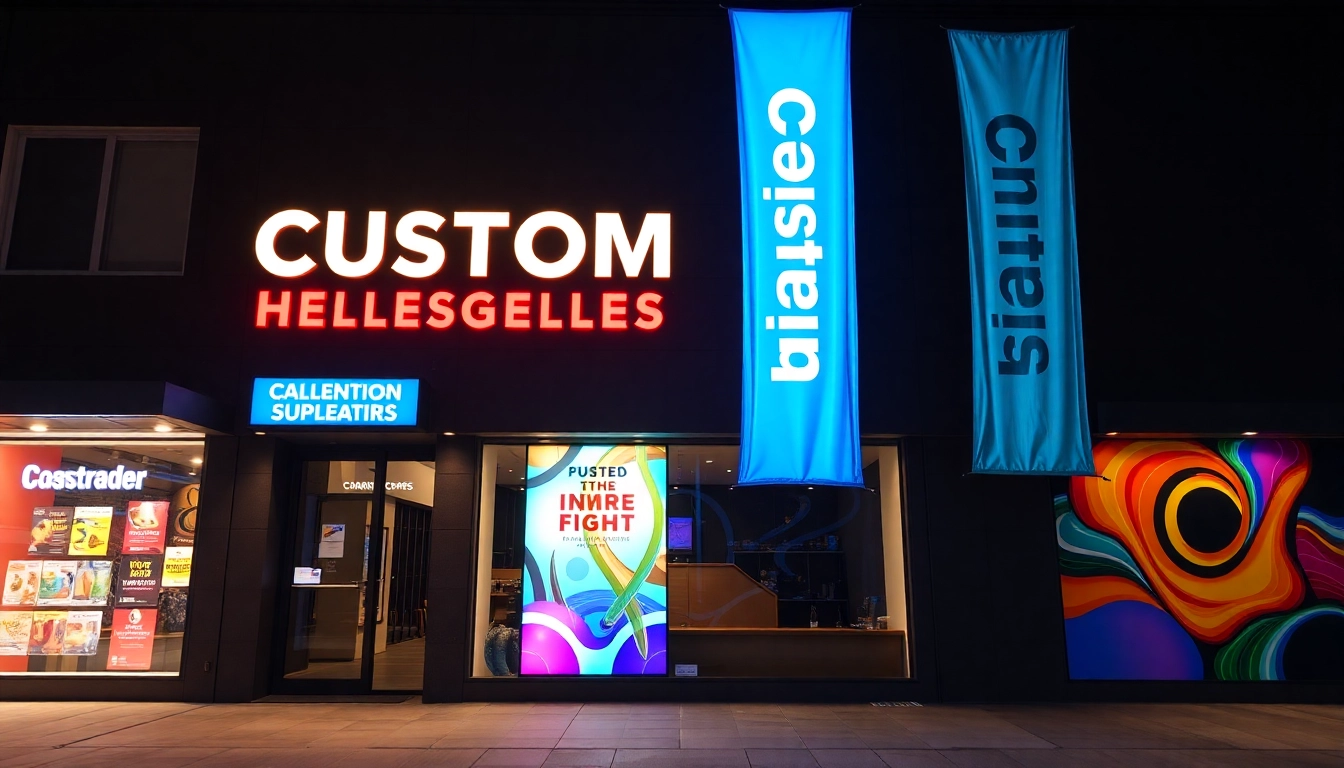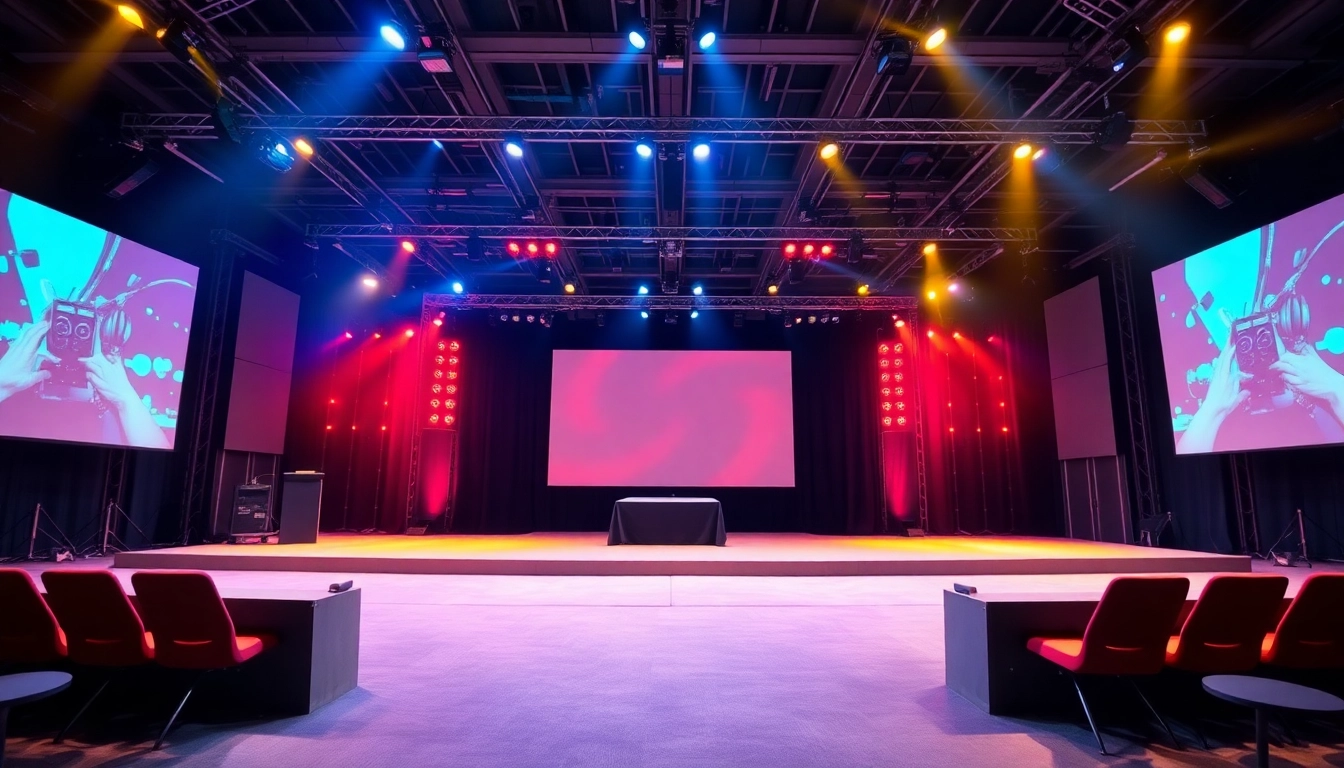The Ultimate Guide to Custom Signs: Elevating Your Business Visibility with Tailored Signage Solutions
In today’s highly competitive marketplace, the importance of effective signage cannot be overstated. Custom signs serve as vital tools for businesses to communicate their brand identity, attract potential customers, and stand out amidst the crowded visual landscape. Whether you’re a small retail shop, a healthcare provider, or a large corporation, investing in custom signs can significantly enhance your visibility and marketing efforts. This comprehensive guide explores every aspect of custom signage—from design and material choices to industry-specific solutions—equipping you with the insights needed to select and implement the most impactful signage for your business.
Understanding the Power of Custom Signs in Business Branding
The Role of Custom Signs in Creating Strong Brand Identity
Custom signs are more than mere identifiers; they are visual ambassadors that embody your brand’s personality, values, and promise. A well-designed custom sign creates immediate recognition and fosters a memorable impression, establishing a cohesive visual identity. For example, iconic brands like Starbucks or McDonald’s rely heavily on their distinctive signage to communicate reliability and familiarity. Effective signage acts as a silent salesperson, guiding customer perception and reinforcing brand loyalty.
Key Benefits of High-Quality Custom Signs for Local Marketing
High-quality custom signs offer numerous advantages rooted in visibility, professionalism, and local engagement. They provide a cost-effective marketing channel, drawing foot traffic and increasing conversions. Custom signage also enhances credibility, showing that you value your brand’s appearance and customer experience. Additionally, well-crafted signs can be tailored to seasonal campaigns or special promotions, making them versatile tools for dynamic marketing strategies.
Trends in Custom Sign Design for Modern Businesses
Staying current with design trends ensures your signage remains relevant and impactful. Modern trends emphasize minimalism with bold typography, vibrant color palettes, and innovative material combinations. Digital integration, such as LED displays and smart signage, offers real-time updates and interactive capabilities. Incorporating eco-friendly materials aligns with sustainability goals, appealing to environmentally conscious consumers. Embracing these trends can position your business as forward-thinking and attuned to market shifts.
Choosing the Right Custom Signs for Your Industry
Commercial Signage Solutions for Retail and Hospitality
Retail and hospitality industries demand signage that attracts attention and fosters a welcoming atmosphere. Illuminated storefront signs, hanging banners, and window graphics are common tools here. For instance, vibrant digital menu boards in restaurants or illuminated wayfinding signs in malls enhance customer experience while promoting sales. Incorporating eye-catching graphics and clear messaging ensures your business captures the fleeting attention of passersby.
Custom Signs for Healthcare, Education, and Offices
Institutions like healthcare centers and educational facilities require clear, professional, and accessible signage. ADA-compliant signs, directional markers, and informational displays facilitate safe navigation for all users. Using durable materials like anodized aluminum or high-quality vinyl ensures longevity in high-traffic environments. Design considerations focus on readability, contrast, and minimal visual clutter to promote clarity and inclusivity.
Outdoor and Indoor Signage Best Practices by Industry
While outdoor signage must withstand weather elements, indoor signs focus on guiding customers seamlessly through your space. For outdoor signage, materials like engraved stone, aluminum, or weatherproof vinyl are recommended. Indoor signage leverages lightweight, versatile materials like acrylic or fabric banners. Industry-specific tips include using bold fonts for quick readability outdoors and sophisticated wall graphics inside for brand storytelling.
Design Strategies for Effective Custom Signs
Color, Typography, and Graphics for Maximum Impact
Studying color psychology reveals how hues influence perception; for example, red inspires urgency while blue conveys trust. Consistent color schemes reinforce brand recognition. Typography should blend readability with personality—bold, simple fonts work best for quick comprehension, while decorative fonts suit luxury brands. High-resolution graphics, icons, and logos add visual interest and communicate your message effectively, especially when optimized for various display sizes.
Material Selection: Durability, Appearance, and Cost
Choosing the right material balances your budget with desired durability and appearance. Common options include acrylic, vinyl, aluminum, and wood, each with unique benefits. Acrylic offers sleek, modern aesthetics with excellent weather resistance, ideal for illuminated signs. Aluminum is lightweight, corrosion-resistant, and suitable for long-term outdoor use. Wood provides a classic, rustic look—perfect for boutique or artisanal brands but requires maintenance. Cost considerations include initial investment, installation, and ongoing upkeep.
Ensuring Accessibility and Compliance in Signage
Compliance with safety and ADA standards is crucial. Signs must be visible, readable, and appropriately placed. Use high-contrast color combinations, tactile features, and accessible fonts. Incorporate universal symbols for clarity (e.g., wheelchair accessibility, fire exits). Non-compliance can lead to legal issues and customer dissatisfaction, so working with signage experts ensures your signs meet all regulatory guidelines.
Implementation and Best Practices for Custom Signs
Working with Sign Professionals: From Concept to Installation
Partnering with experienced sign companies streamlines the process of turning your vision into reality. Effective collaboration involves clear communication of your branding, goals, and budget. Start with detailed design mockups, select suitable materials, and discuss installation logistics. Professionals handle permits, safety protocols, and precise mounting to ensure a polished and durable result.
Maintenance and Updating Your Custom Signs Over Time
Regular upkeep preserves your signage’s appearance and functionality. Clean signs with appropriate solutions to prevent buildup, inspect for damage, and promptly replace worn elements. Updating digital or replaceable components keeps your messaging fresh, relevant, and engaging, especially during promotional campaigns or seasonal events.
Measuring Sign Effectiveness and ROI
Assessing signage performance involves tracking changes in foot traffic, sales conversions, and brand awareness. Techniques include customer surveys, monitoring digital engagement, and utilizing analytics for digital signs. Adjustments based on data optimize your signage’s ROI, ensuring your investment yields tangible business benefits.
Innovative Technologies in Custom Signage
Digital and LED Custom Signs for Dynamic Messaging
Digital signs, including LED displays, enhance flexibility by allowing real-time content updates. They enable targeted messaging, countdowns, and animation that captivate attention. For example, LED display boards can advertise daily specials or upcoming events, directly influencing customer behavior and engagement. The versatility of digital signage makes it indispensable for evolving marketing strategies.
Eco-Friendly Materials and Sustainable Signage Options
As sustainability becomes a priority, eco-friendly materials like recycled plastics, bamboo, and biodegradable vinyl gain popularity. Solar-powered signage reduces energy consumption. Implementing green signage demonstrates corporate responsibility and appeals to eco-conscious consumers, providing a competitive edge.
Future Trends in Business Signage and Visual Communication
Emerging trends include augmented reality signage, 3D illuminated signs, and integrate signage with mobile technologies. Smart signage that responds to customer proximity or integrates with social media enhances interactivity. Staying ahead of these trends ensures your business remains innovative and relevant, ready to adapt to future consumer expectations.



